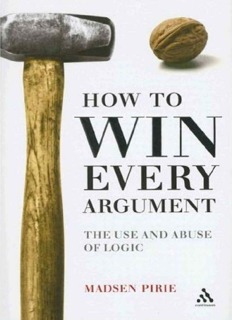Introduction
Sound reasoning is the basis of winning an argument. Logical fallacies undermine arguments. They are a source of enduring fascination and have been studied for at least two-and-a-half millennia. Knowledge of them is useful, both to avoid those used inadvertently by others and even to use a few with intent to deceive. The fascination and the usefulness that they impart, however, should not be allowed to conceal the pleasure that identifying them can give. I take a very broad view of fallacies. Any trick of logic or language that allows a statement or a claim to be passed off as something does not have an admission card to the enclosure reserved for fallacies.
Very often it is the case that what appears to be a supporting argument for a particular contention does not support it at all. Sometimes it might be a deduction drawn from evidence that does not sustain it. Many of the fallacies are committed by people genuinely ignorant of logical reasoning, the nature of evidence, or what counts as relevant material. Others, however, might be committed by persons bent on deception.
If there is insufficient force behind the argument and the evidence, fallacies can add enough weight to carry them through. This book is intended as a practical guide for those who wish to win arguments. It also teaches how to perpetrate fallacies with mischief at heart and malice aforethought. I have described each fallacy, given examples of it, and shown why it is fallacious.
After any points of general interest concerning the history or occurrence of the fallacy, I have given the reader recommendations on how and where the fallacy may be used to deceive with maximum effect. I have listed the fallacies alphabetically, although a full classification of the five major types of fallacy may be found at the end of the book. It is well worth the reader’s trouble to learn the Latin tags wherever possible.


aslam
Excellent Story